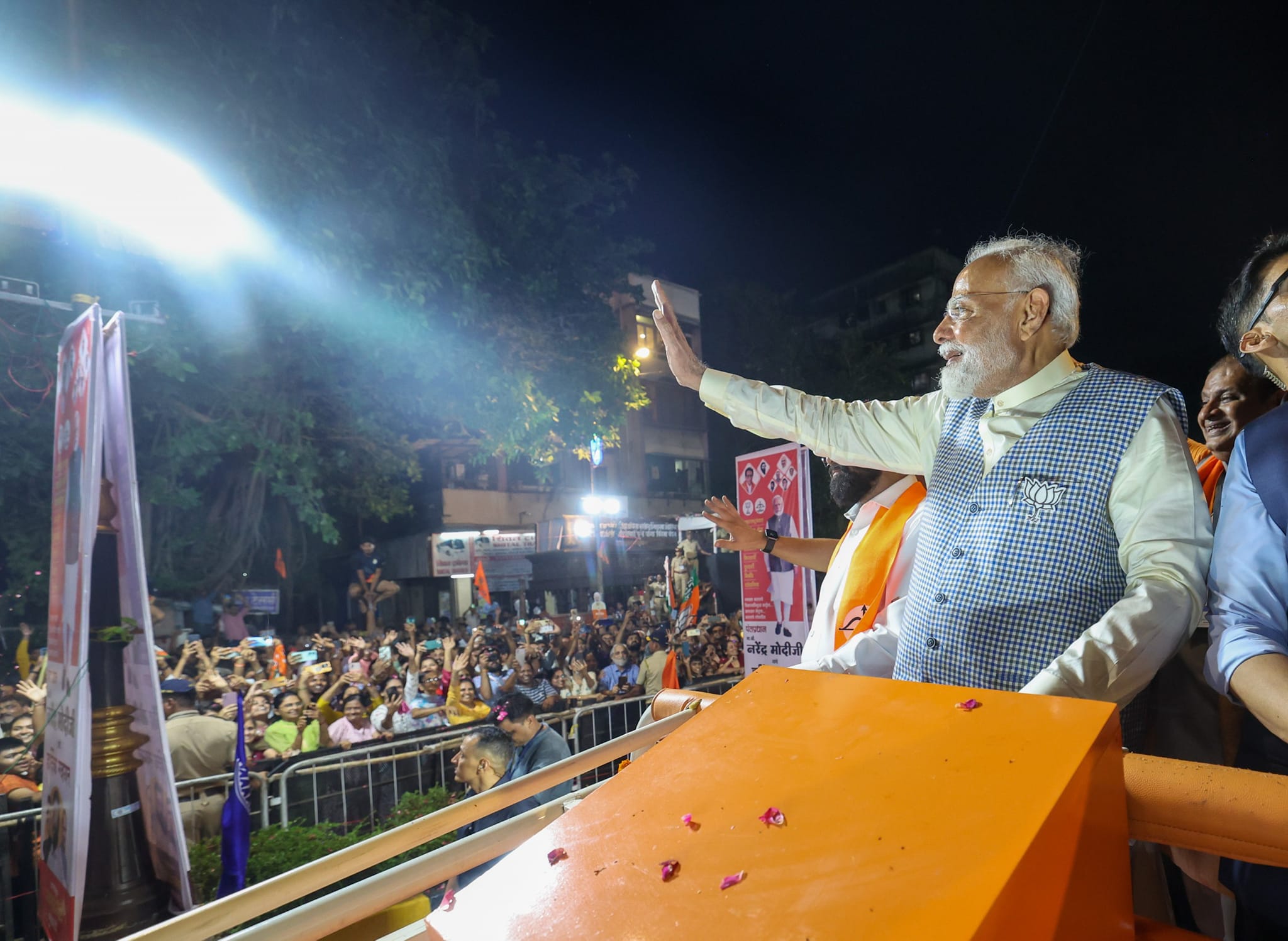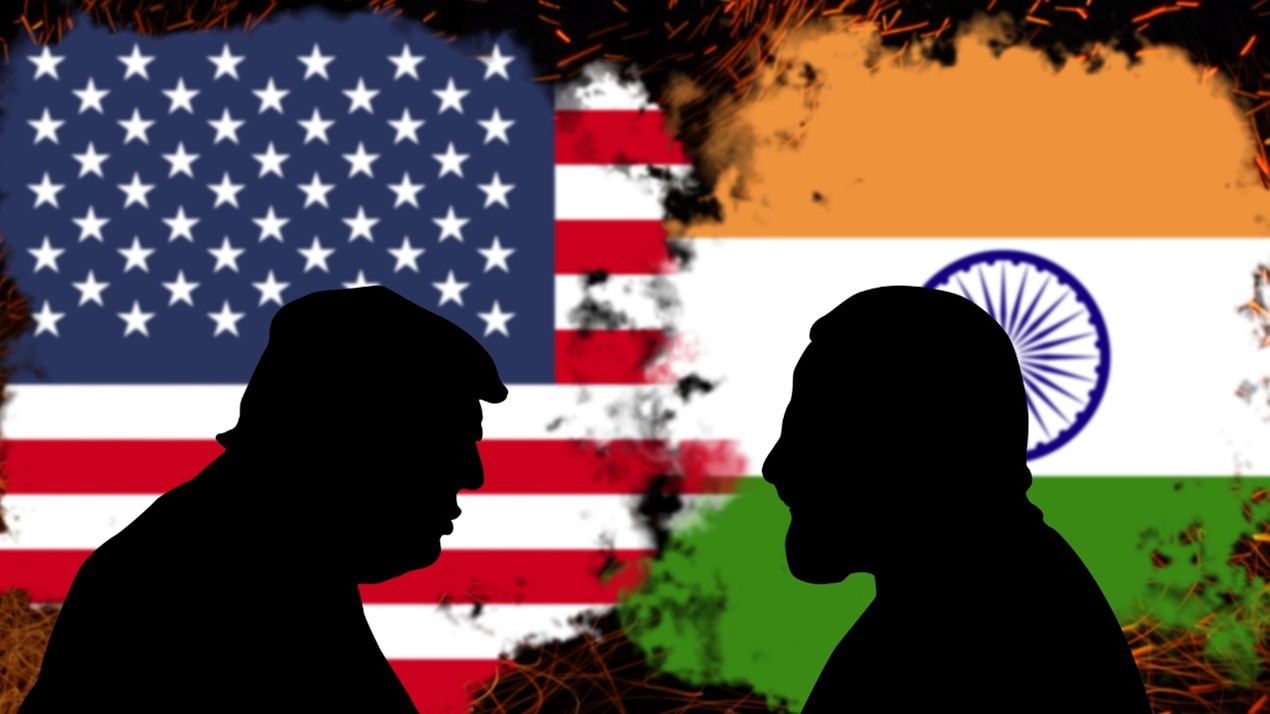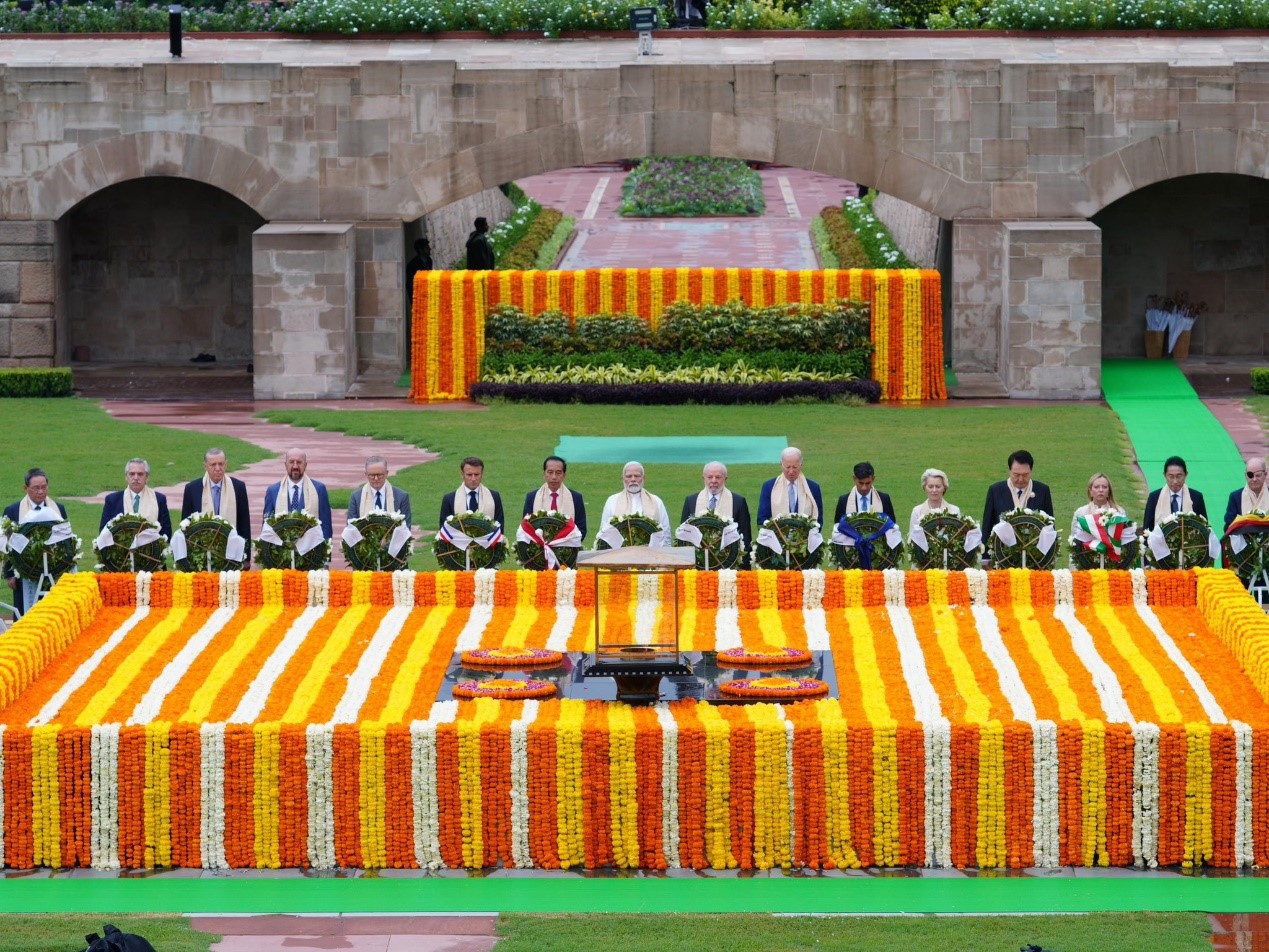Modi and India’s General Elections: Potential Impact on India’s Foreign Policy
In this intense election, the current ruling Party, Bharatiya Janata Party led by Narendra Modi, is seeking a third consecutive term. Modi remains the popular face and his efficacious reputation in India’s foreign policy, along with other factors such as weak competition, may be decisive factors for his victory. Picture source: Narendra Modi, May 16, 2024, Facebook, https://www.facebook.com/photo/?fbid=1223724395788457&set=pb.100044527235621.-2207520000&locale=zh_TW.
Prospects & Perspectives No. 29
Modi and India’s General Elections: Potential Impact on India’s Foreign Policy
By Kritika Rajpu & Siddhartha Ghosh
The biggest democracy in the world is undergoing elections, a crucial event as it will direct the fate of a 1.4 billion-strong population along with the regional and global geopolitical discourse. In this intense election, the current ruling Party, Bharatiya Janata Party (BJP) led by Narendra Modi, is seeking a third consecutive term which is considered rare in Indian politics, as people are known to vote out the incumbents in favor of the opposition. These elections are being held against the backdrop of India’s increasing power in international politics, particularly following its successful G20 Presidency in 2023, which is domestically perceived as an indication that “India’s moment has arrived.” In this election, Modi remains the popular face and his efficacious reputation in India’s foreign policy, along with other factors such as weak competition, lack of a popular face by the opposition, and paucity of strong campaign and public outreach, may be decisive factors for his victory.
Moreover, the Indian public’s perception of the success of India’s foreign policy during the past 10 years is a significant element that has worked in favor of the present administration. Although it is widely believed that foreign policy has little impact on Indian elections, it would be a mistake to completely downplay its importance. Even while everyday economic issues and concerns over identity are voters’ main concerns, prior elections have demonstrated the power of national security to influence opinion.
‘A friend of the world’
The BJP has consistently used its foreign policy achievements to enhance its domestic appeal, with Prime Minister Modi’s image as a strong leader being closely tied to his foreign policy assertiveness. India is positioned by the government as a “Vishwamitra” or “a friend of the world,” to serve as an example for other countries. The government strategically highlighted India’s G20 leadership as a signal of its rise as a significant global actor, especially with the 2024 elections approaching. During the election campaign, the BJP has continued to highlight these points.
Additionally, India under the current government has increased its global presence by deepening engagement and strengthening ties with regions that are critical to its fundamental interests, including the Indo-Pacific, West Asia and the West. Moreover, under the BJP-led government, India’s fundamental foreign policy tenet of strategic autonomy, which calls for staying out of formal “camps” and alliances to maximize strategic space and provide adequate independence and flexibility in global affairs, has helped it achieve several significant strategic achievements. One example of this is its stance on two most important crises of today: the Israel-Palestine conflict and the Ukraine-Russia war. The government is assertive in pursuing its interests, aiming for its voice to resonate across global, multilateral and regional platforms, ensuring its perspectives are heard by all stakeholders.
Continuity, strategic autonomy and engagement
Following the tide of the foreign policy success, if BJP forms the government for a potential third term with Modi as prime minister, it is expected that his administration will continue the policies it already has in place for different regions and issues in global geopolitics. It is anticipated that it will continue its focus on India’s neighborhood and maintain balanced relations with major powers without compromising the strategic autonomy or national interests as it has demonstrated earlier. In its campaign manifesto, the BJP has promised to implement a foreign policy that will prioritize India or a Bharat-First foreign policy. Also, the manifesto promises to make India the “First responder,” continuing on India’s image created in the recent past by its swift response to the Turkey-Syria earthquake (Operation Dost), humanitarian aid to Gaza, flood-hit Kenya and many more.
Furthermore, India is expected to enhance ties with the United States, creating a stronger strategic partnership without compromising its independent stance towards Russia. In addition, it is anticipated that India will expand its diplomatic outreach towards Israel, strengthening the existing strong bilateral ties without giving up its humanitarian concerns about Palestine. Also, India would most certainly step up its strategic measures in response to China’s belligerent posture, especially if the border talks do not progress toward a solution and are intentionally stalled by Beijing. This will include continued military preparedness along disputed borders and establishing strategic partnerships to address China’s influence in the Indo-Pacific region. Additionally, India’s engagement in partnerships like QUAD and with groupings like the AUKUS (Australia-UK-US) Security Pact highlights its strategic interests in the Indo-Pacific and its dedication to maintaining regional stability and will be expected to have continued engagements.
Moreover, it can be anticipated that the BJP under PM Modi will present India as the “voice of the Global South” or the leader of the Global South as it has already done in the past. This is demonstrated by the inclusion of the African Union in the G20 last year. India is poised to intensify its efforts in engagements with the Global South assertively and considering this, India has expressed its support for a multipolar world and its willingness to work with all nations. India is dedicated to offering the Developing World sufficient space to develop together.
Moreover, India would be expected to lead initiatives as it has done in the past decade which also caters to the environmental needs of the planet, like the International Solar Alliance under the One Sun One World One Grid initiative. It positions India at the forefront of global climate leadership. Also, according to recent research by UBS India, given India’s growing presence in global value chains, more advancements in digitalization and a persistent push for manufacturing and exports might be anticipated during a possible third term for Modi.
Regional challenges
A possible challenge to Modi’s administration in the third term would be to tackle the negative sentiments in India’s neighborhood. The so-called “India Out” campaign, started by Bangladesh’s opposition party and the chances of U.S. sanctions on Bangladesh for its alleged malpractices in the election, could cause hiccups for Indian foreign policy. Also, even though Bhutan has always considered India’s security interests, India would want to closely monitor the developments on the Boundary delimitation agreement between Bhutan and China. Of greater concern is Bhutan’s ambitious Gelephu Mindfulness City (GMC) mega-project, announced by King Jigme Wangchuck, which requires significant funding and involvement from Indian private infrastructure, health and IT companies. Moreover, Sri Lanka, though still facing economic challenges, finds itself on a more stable footing with support from India. The forthcoming 2024 presidential and legislative elections could change or possibly not alter the course of Colombo’s ties with Delhi. Also, the Maldives is presently experiencing a diplomatic crisis that has raised questions about its relationship with India because of remarks made in an undiplomatic manner, military actions and the cancellation of important agreements. The Maldives has also established new agreements with China, which has complicated the geopolitical veracity in the area. Therefore, it would be interesting to see how Modi in his potential third term would tackle the challenges closer home.
(Kritika Rajput is Research Associate; Siddhartha Ghosh is Head, Research and Outreach, Red Lantern Analytica.)





